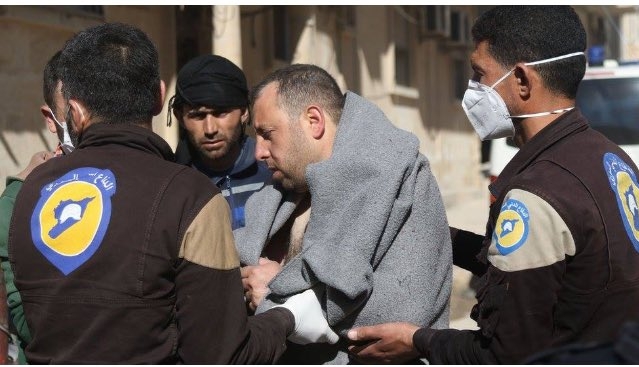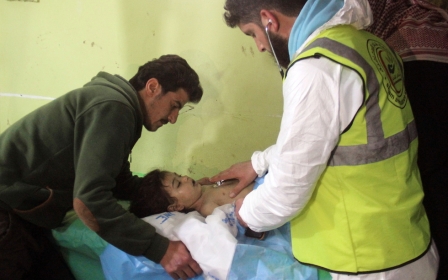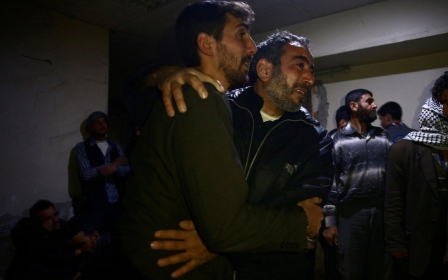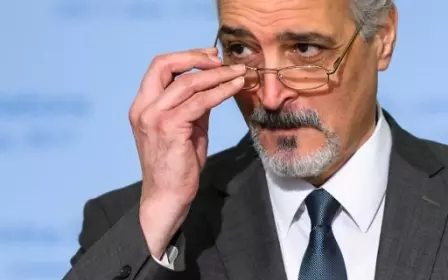Syria attack 'calls into question' peace process, says opposition

A suspected chemical attack that killed dozens in Syria on Tuesday "calls the political process into question", the opposition's chief negotiator at peace talks has said.
"If the United Nations cannot deter the regime from carrying out such crimes, how can it achieve a process that leads to political transition in Syria?" asked Mohamad Sabra.
Sabra is the head negotiator for the main opposition High Negotiations Committee (HNC) that took part in recent peace talks hosted by the United Nations in Geneva.
"This crime... will force us to re-evaluate whether it's feasible to take part in a political process sponsored by the UN if it is unable to enforce its own resolutions, notably UNSCR 2118," Sabra said.
UN Security Council Resolution 2118 was passed after a massive chemical weapons attack that killed hundreds in several opposition areas around Damascus in 2013.
At least 57 people including 11 children died after air strikes on the rebel-held town of Khan Sheikhun, the Syrian Observatory for Human Rights said.
The Britain-based monitor said jets released "toxic gas" in the town but could not confirm the nature of the material.
Doctors and experts have said symptoms presented by victims suggested the release of a nerve agent, such as Sarin.
The attack came as the European Union and UN hosted a conference in Brussels on Syria's future, with EU diplomatic chief Federica Mogherini saying the regime in Damascus bears "primary responsibility" for the attack.
"Today the news is awful," Mogherini said in an interview with media organisations in Brussels on the sidelines of a EU-UN conference that was meant to focus on the post-conflict situation in Syria.
"But this is a dramatic reminder that the situation on the ground continues to be dramatic in many parts of Syria," Mogherini said.
"Obviously there is a primary responsibility there of the regime because it has responsibility of protecting its people not attacking its people."
The EU and the UN are co-chairing a two-day conference to follow up on a London meeting last year which raised $11bn for aid programmes to help the devastated country.
New MEE newsletter: Jerusalem Dispatch
Sign up to get the latest insights and analysis on Israel-Palestine, alongside Turkey Unpacked and other MEE newsletters
Middle East Eye delivers independent and unrivalled coverage and analysis of the Middle East, North Africa and beyond. To learn more about republishing this content and the associated fees, please fill out this form. More about MEE can be found here.




